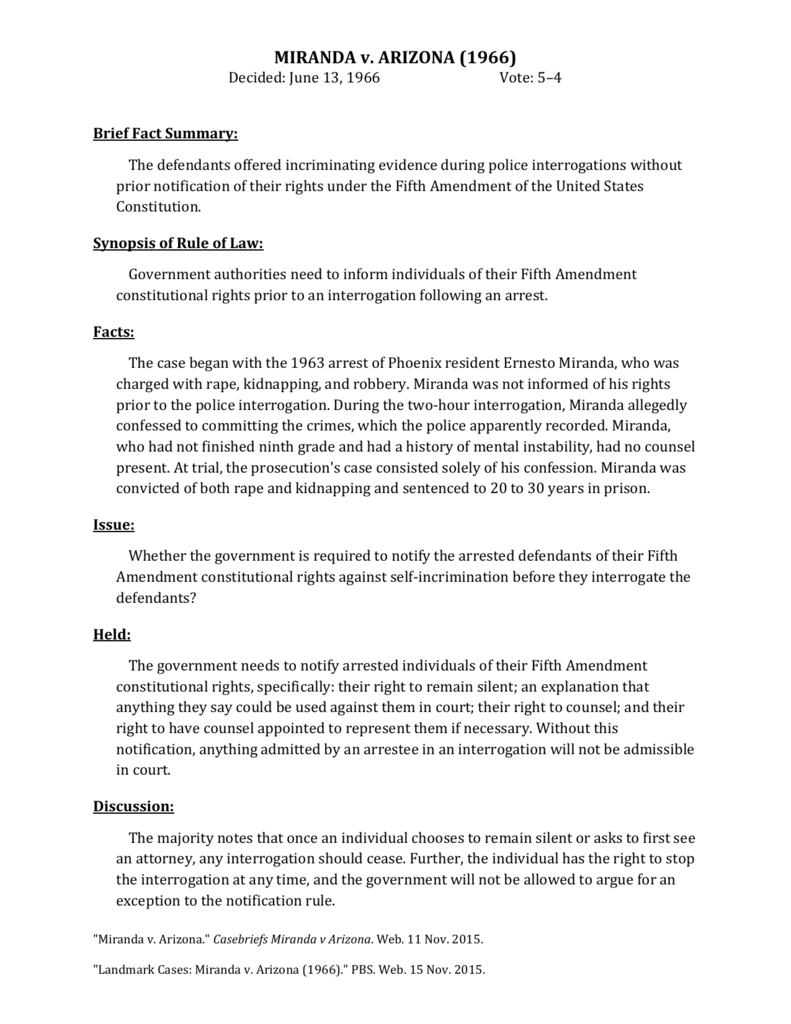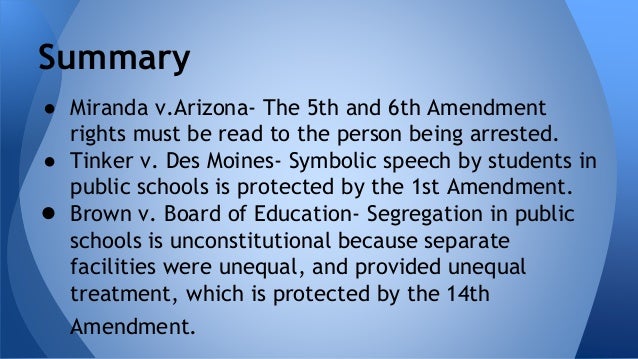In each of these cases the defendant while in police custody was questioned by police officers detectives or a prosecuting attorney in a room in which he was cut off from the outside world. Arizona legal case in which the US.
Https Scholarship Law Wm Edu Cgi Viewcontent Cgi Article 2404 Context Facpubs
Miranda confessed that he had kidnapped and raped a woman but was never told that he could have an attorney present during questioning nor informed that he had the right to remain silent.
Miranda v arizona 1966 summary. 436 1966 Miranda v. Arizona the court was tasked with. A quick over for students seeking to understand the 1966 Warren Court decision Miranda v Arizona.
Miranda Vs Arizona 1966 is a consolidation of four cases tried in the United States Supreme Court the decision of the Court on the issue of rights under Fifth amendment is regarded as a landmark judgement of its time it is by far the most cited case in American Criminal Proceedings History. Daniela GuerreroMcalister Akwete KAP Government and Politics9 January 2013. Before confessing the police did not advise Miranda of his right to counsel.
March 11 2017 by. He begins by saying that the Supreme Court has gone a bit too far with their decision that there can be no interrogation if the suspect wants to remain silent. Miranda was convicted of both rape and kidnapping and sentenced to 20 to 30 years in prison.
The Court summarized its holding as thus. He appealed to the Arizona Supreme Court claiming that. He believes this rule plus the lawyer part helps criminals at the expense of law enforcement.
Arizona United States Supreme Court 1966 Case Summary of Miranda v. He was convicted based on his confession and sentenced to 20 years in prison. In the Supreme Court case Miranda v.
None of the defendants was. Supreme Court on June 13 1966 established the Miranda warnings a set of guidelines for police interrogations of criminal suspects in custody designed to ensure that suspects are accorded their Fifth Amendment right not to be compelled to incriminate themselves. Miranda was eventually convicted but appealed to the Supreme Court in 1966 claiming his confession was unconstitutional.
Ernesto Miranda defendant confessed after questioning by Arizona police while he was in custody at a police station. Miranda was taken into custody by police for. Miranda suffered from a mental illness.
Following is the case brief for Miranda v. Decided June 13 1966 384 US. In 1966 Ernesto Miranda was arrested and interrogated for two hours by police.
Clark keeps it short and sweet throughout this whole section. The State of Arizona plaintiff charged Miranda with kidnapping and rape. The prosecution may not use statements whether exculpatory of inculpatory stemming from custodial interrogation of the defendant unless it demonstrates the use of procedural safeguards effective.
Argued February 28-March 1 1966.
Miranda V Arizona Greenwood Lakes Social Studies
 The Supreme Court Expanding Civil Rights Landmark Cases Miranda V Arizona 1966 Pbs
The Supreme Court Expanding Civil Rights Landmark Cases Miranda V Arizona 1966 Pbs
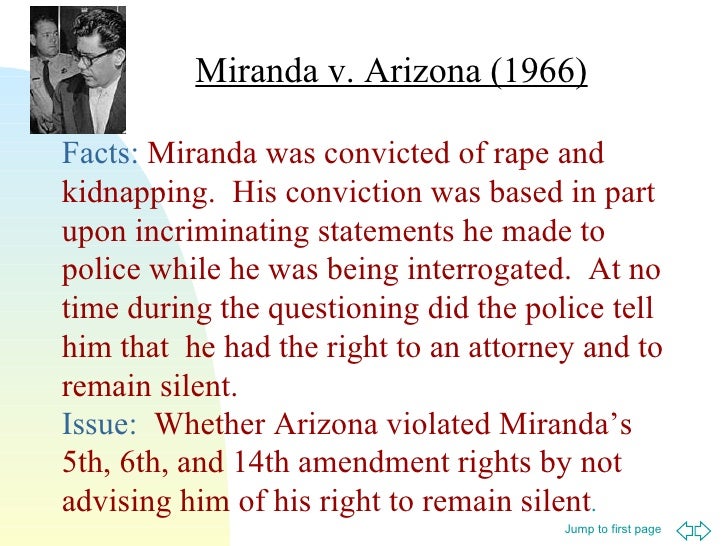 Miranda V Arizona Issue Ekbooks Org
Miranda V Arizona Issue Ekbooks Org
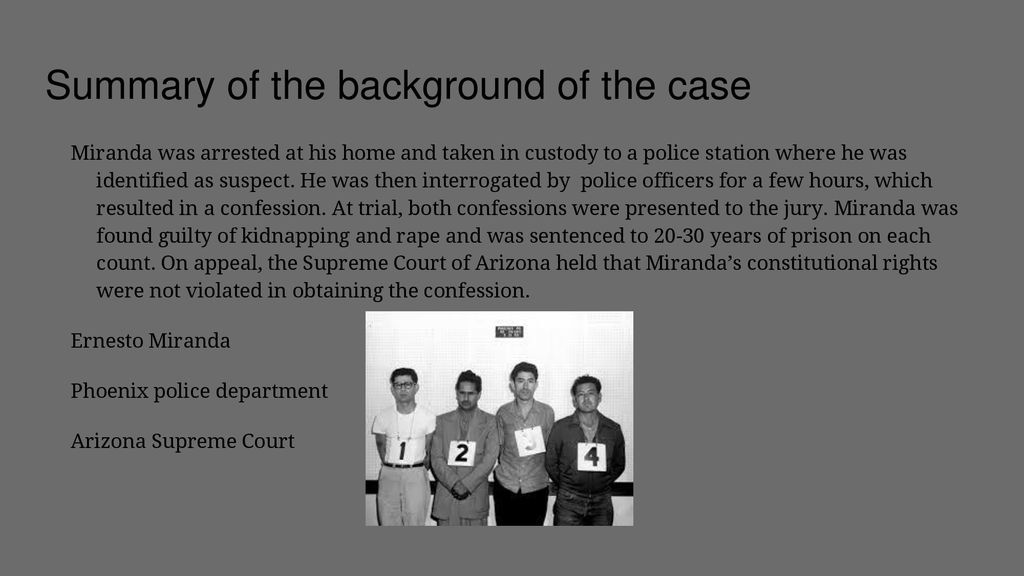 Miranda V Arizona Ppt Download
Miranda V Arizona Ppt Download
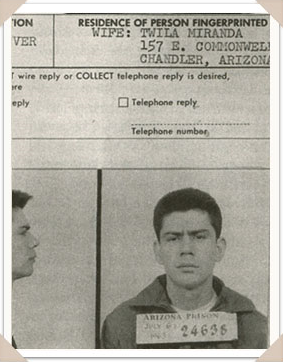 5th Amendment The Papers Of Justice Tom C Clark Tarlton Law Library At Tarlton Law Library
5th Amendment The Papers Of Justice Tom C Clark Tarlton Law Library At Tarlton Law Library
